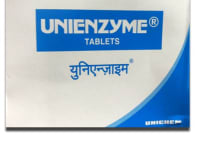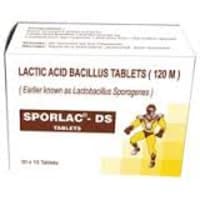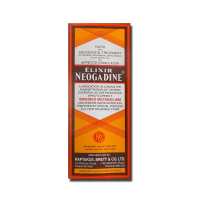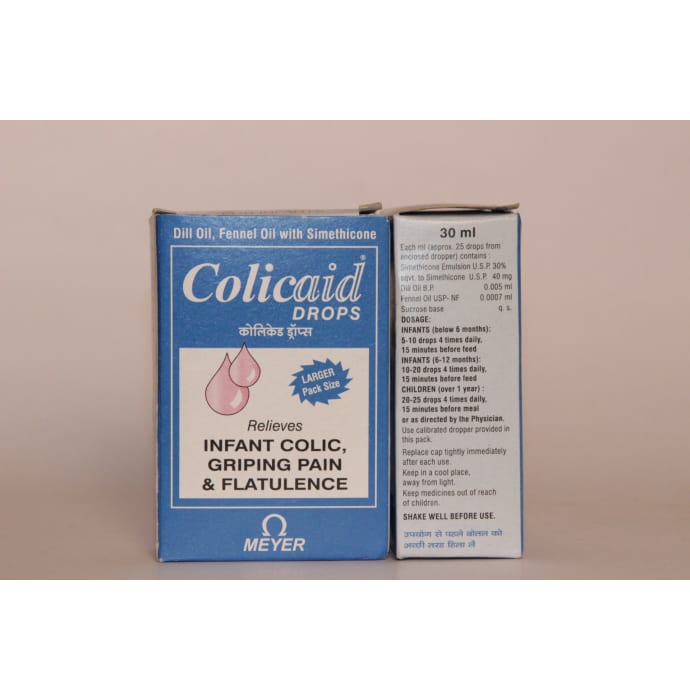NOTICE: unsafe with : Alcohol
USED FOR:
Acidity
Heartburn
Intestinal ulcers
COMPOSITION:
Famotidine (20mg)
Therapeutic Uses:
gastro intestinal

CAUTION
Taking a large amount of alcohol can increase acidity and cause acid reflux in the food pipe causing heartburn. This would decrease the effect of this drug and can aggravate your underlying condition.

PROBABLY SAFE
Pepgard 20mg Tablet is probably safe to use during pregnancy.Animal studies have shown low or no adverse effect on the foetus, however, there are limited human studies. Please consult your doctor.

Pepgard 20mg Tablet is probably safe to use during lactation. Limited human data suggests that the drug does not represent a significant risk to the baby.

SAFE
Pepgard 20mg Tablet does not usually affect your ability to drive.

CAUTION
Pepgard 20mg Tablet should be used with caution in patients with kidney disease. Dose adjustment of Pepgard 20mg Tablet may be needed. Please consult your doctor.

Pepgard 20mg Tablet is probably safe to use in patients with liver disease. Limited data available suggests that dose adjustment of Pepgard 20mg Tablet may not be needed in these patients. Please consult your doctor.
Uses of Pepgard Tablet
Pepgard 20mg Tablet is used in the treatment of acidity, heartburn, intestinal ulcers and stomach ulcers.
How to use Pepgard Tablet
Take this medicine in the dose and duration as advised by your doctor. Swallow it as a whole. Do not chew, crush or break it. Pepgard 20mg Tablet is to be taken with food.
How Pepgard Tablet works
Pepgard 20mg Tablet is an H2 blocker. It works by reducing the amount of acid in the stomach which helps in relief of acid-related indigestion and heartburn.
Common Headache, Muscle pain, Fatigue, Diarrhoea, Drowsiness, Constipation.
Expert advice for Pepgard Tablet
Pepgard is a well tolerated and safe medicine with a very low incidence of side effects. Take Pepgard before going to bed if you are taking this medicine once a day as it is very effective in controlling stomach acid released in the midnight. If you are also taking an antacid, take it two hours before or after taking Pepgard. Avoid taking soft drinks, citrus fruits like orange and lemon, which can irritate the stomach and increase acid secretion. Inform your doctor if you do not feel better after taking Pepgard for two weeks or 14 days as you may be suffering from some other problems. Inform your doctor if you have ever been diagnosed with kidney or liver disease. Dose of your medicine may need to be adjusted.
Q. How is Pepgard different from omeprazole?
Both Pepgard and omeprazole lower the acid production in your stomach but they belong to the different group of drugs. Studies have shown that omeprazole is more effective than Pepgard in treating heartburn and in rapid healing of duodenal ulcers. However, the effect of these medicines may vary upon individual response.
Q. Is Pepgard an antacid?
Pepgard belongs to the class of H2 receptor blockers which decrease the amount of acid produced in the stomach. While antacids only neutralize the stomach acid by coating the stomach.
Q. What is the difference between Pepgard and pantoprazole?
Pepgard is an H2 histamine receptor blocker whereas pantoprazole is a proton pump inhibitor. Pantoprazole is more potent at inhibiting gastric acid production compared to famotidine and also its effect lasts for a long time.
Q. How is Pepgard different from cimetidine?
Both Pepgard and cimetidine lower gastric acid secretion by blocking the H2 receptor in the stomach. However, Pepgard is longer acting, more efficacious, and has very less side effects when compared to cimetidine.
Q. Is Pepgard safe to use?
Pepgard is safe if used for a prescribed duration in doses as prescribed by your physician. However, there are some common side effects that you can experience with the dose advised, like a headache, muscle pain, fatigue, diarrhea, drowsiness, and constipation.
Q. Can I take Pepgard with ibuprofen?
Pepgard can be taken with ibuprofen. Ibuprofen is a pain killer and belongs to the group of NSAIDs (non-steroidal anti-inflammatory agents) which can cause stomach acidity, heartburn, and stomach ulcers. Drugs like Pepgard are used to prevent and treat gastric problems caused by ibuprofen.
Q. Would there be a change in the dose of Pepgard in patients undergoing dialysis?
Yes, there could be a change in the dose of Pepgard in patients undergoing dialysis. In patients with severe renal failure, a lower dose of Pepgard is recommended. However, patients who undergo dialysis do not need to add a dose even if there is a considerable variation in the clearance of the drug from the body in these patients.
Q. Can I take Pepgard with aspirin?
Aspirin can be taken with Pepgard. Aspirin is a pain killer and belongs to the group of NSAIDs (non-steroidal anti-inflammatory agents) which can increase the gastric acid secretion and worsen stomach acidity, heartburn, and stomach ulcers. On the other hand, drugs like Pepgard are used to prevent and treat gastric problems caused by painkillers.
Q. Why does Pepgard cause dizziness?
Dizziness is a commonly reported side effect with the use of Pepgard. The exact mechanism of this is not known. However, it is suggested to block H2 receptor located in some brain areas (cerebral cortex and corpus striatum) which can lead to dizziness. Do not drive or use any machinery in case you feel dizzy while taking Pepgard.
Q. What is the role of Pepgard before surgery?
Pepgard is given as a part of pre-anesthetic medication before surgery to decrease the stomach acid secretion so that stomach acid is not aspirated into the lungs during surgery.
Q. Can I take Pepgard with ranitidine?
Both Pepgard and ranitidine lower gastric acid secretion by blocking the H2 receptor in the stomach. They are not used together as they have a similar action and use and when used together, there could be an increased risk of side effects.
Q. What is the role of Pepgard in critically ill patients?
Pepgard may be used in critically ill patients to decrease stomach acid secretion and lower the risk of acid aspiration into the lungs. It also helps in decreasing stomach ulcers and gastrointestinal bleeding in these patients.
Q. What is the difference between Pepgard and esomeprazole?
Pepgard is an H2 histamine receptor blocker whereas esomeprazole is a proton pump inhibitor. Esomeprazole is more potent at inhibiting gastric acid production compared to Pepgard and also its effect lasts for a long time.
Q. Is Pepgard an over the counter product?
Pepgard is not available as an over the counter (OTC) product. It is a prescription medicine and is available when prescribed by a doctor.
Q. Are there any withdrawal symptoms associated with the use of Pepgard?
Pepgard is not seen to be associated with any withdrawal symptoms. In treatment-withdrawal studies of Pepgard, no significant withdrawal symptoms were observed after discontinuing the medication.
Q. Why is Pepgard added to total parenteral nutrition?
Patients on total parenteral nutrition are prone to increased secretion of stomach acid in the absence of food. H2 receptor blockers like Pepgard is given in these patients to decrease acid secretion and prevent gastric ulcers.
Q. What are the side effects of Pepgard seen in infants?
Irritability, lethargy, diarrhea, dry mouth, vomiting, constipation, abdominal discomfort, fatigue, and urticaria are some of the side effects reported with the use of Pepgard in infants (children less than 1 year of age).
Q. Why is Pepgard used in cancer patients?
Pepgard may be used for multiple reasons in cancer patients. It can lower stomach acid volume in patients undergoing chemotherapy to prevent aspiration and lower the risk of stomach ulceration and bleeding. According to some studies, Pepgard can potentiate white blood cell against cancer cells and can be helpful in the treatment of cancer.
Q. When does Pepgard expire?
Yes, Pepgard does expire. Please check the expiry date written on the pack and it refers to the last day of that month. Do not use Pepgard after the expiry date.
Q. Is there any benefit of taking Pepgard with Lansoprazole?
Both Pepgard and pantoprazole lower gastric acid secretion, however, they work by different mechanisms. If you have been advised to take pantoprazole, you can take Pepgard initially for rapid relief of heartburn and acid reflux as pantoprazole may take a few days to show its effect and help in relieving symptoms.
Q. What is the benefit of taking Pepgard with Pantoprazole?
Both Pepgard and pantoprazole lower gastric acid secretion, however, they work by different mechanisms. If you have been advised to take pantoprazole, you can also take Pepgard initially for rapid relief of heartburn and acid reflux as omeprazole may take a few days to show its effect and provide relief.
Q. Does Pepgard use cause hair loss?
No, use of Pepgard is not seen to cause hair loss. Some common side effects associated with its use includes a headache, muscle pain, fatigue, diarrhea, drowsiness, and constipation.
Q. What are the side effects of Pepgard in elderly?
No specific studies have been done to study the use of Pepgard in elderly. Headache, dizziness, dry mouth, nausea, vomiting, constipation, abdominal discomfort, fatigue, and urticaria are some of the side effects reported with its use. Elderly patients are more prone to have kidney related problems and so a dose adjustment may be needed.
Q. Is it safe to take Pepgard with Tramadol?
Yes Pepgard can be taken with Tramadol. No drug-drug interactions or any harmful effects have been reported when they are used together.
Q. Can I take Pepgard with Ciprofloxacin?
Pepgard and Ciprofloxacin can be taken together. Ciprofloxacin is an antibiotic and is used to treat bacterial infections. Pepgard is sometimes given along with for the relief of associated stomach acidity or acid reflux. No drug-drug interactions or any harmful effects have been reported when they are used together.
Q. Is it safe to take Pepgard with Azithromycin?
Pepgard and Azithromycin can be taken together. Azithromycin is an antibiotic and is used to treat bacterial infections. Pepgard is sometimes given along with for the relief of associated stomach acidity or acid reflux. No drug-drug interactions or any harmful effects have been reported when they are used together.
Q. Can I take Pepgard with Doxycyclin?
Pepgard and Doxycyclin can be taken together. Doxycyclin is an antibiotic and is used to treat bacterial infections. Pepgard is sometimes given along with for the relief of associated stomach acidity or acid reflux. No drug-drug interactions or any harmful effects have been reported when they are used together.


 Pepgard 20mg Tablet
Pepgard 20mg Tablet  Bookmark
Bookmark





















